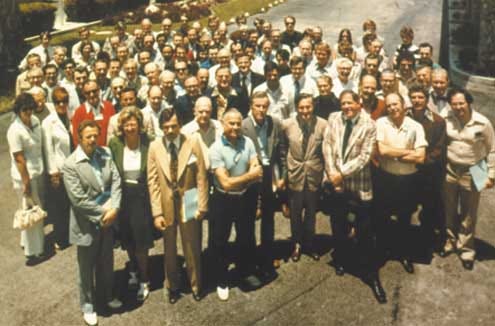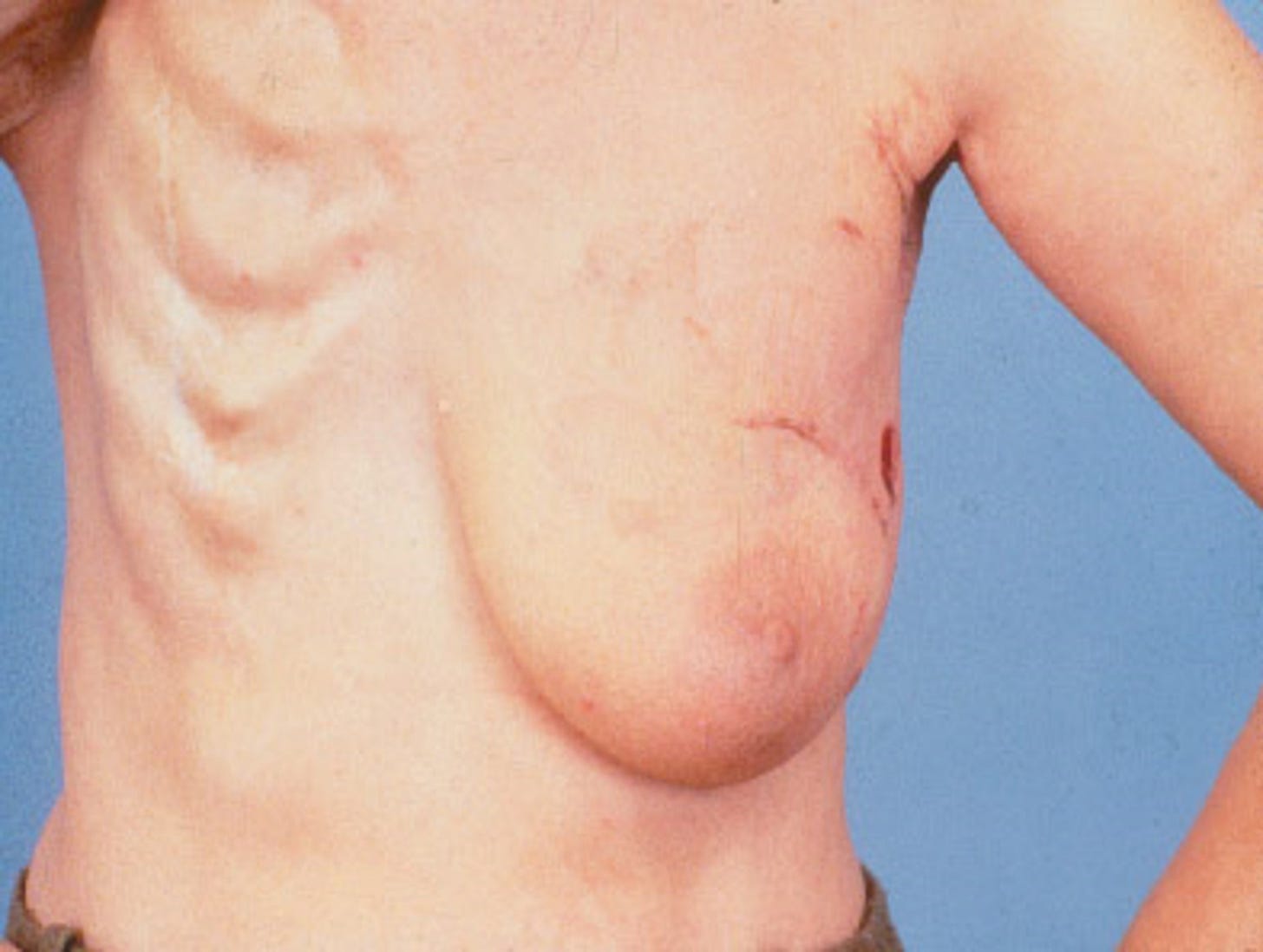We return to Washington, D.C. In the fall of 1974, the results of Bernie’s clinical trials promise to change the treatment of breast cancer forever... if only it were that easy.
Pictures:


And one video: In 1993, the cover of the New York Times Magazine featured model Matuschka baring her radical mastectomy scar. The image prompted an unprecedented response from readers.
Keep Reading:
Why Nancy Reagan's Cancer Diagnosis Led to More Mastectomies
First Lady Nancy Reagan underwent a routine, screening mammogram on October 5, 1987, which revealed a small mass. With her husband amid Robert Bork’s controversial Supreme Court nomination and a planned State Visit from the Crown Prince and Princess of Japan, the Reagans kept her diagnosis quiet and scheduled her surgery a few weeks later.
Links:
Time profile of Dr. Jerome Urban. December 9, 1974
Pioneers of Surgery: Beyond the Knife features interviews with Fisher, Urban, and Crile.
Ithaka by C.P. Cavafy
Sources:
Breast Cancer Report to the Profession Suddenly is a Report to the Nation: Treatment Progress is Needed. The Cancer Letter. October 4, 1974
Dr. Nathaniel Berlin Oral History. National Cancer Institute Oral History Project. June 30, 1997.
Ten-Year Results from the NSABP Clinical Trial Evaluating the Use of L-Phenylalanine Mustard (L-PAM) in the Management of Primary Breast Cancer. Journal of Clinical Oncology. 4(6). 929-941. 1986.
Bernard Fisher: A Pioneer Moves On. The Oncologist. January 2020.
“Tests Give First Lady Optimistic Outlook.” The Washington Post. October 1, 1974
What Women Should Know About the Breast Cancer Controversy. Dr. George Crile, Jr. 1973
“How Clinical Trials Saved Women with Breast Cancer from Disfiguring Surgery.” The Atlantic. August 9, 2013.
“Not So Simple: The Breast Cancer Stories of Betty Ford and Happy Rockefeller.” Dr. Barron Lerner.
The Death of Cancer. Dr. Vincent DeVita. 2016.
“The Changing Role of the Patient.” Western Journal of Medicine. Dr. Malcolm Watts. June 1975.
“Patients and Others as Doctors.” Western Journal of Medicine. April 1981.
Bernard Fisher Interview, National Council of Jewish Women- Pittsburgh Section Oral History (1981)
“Statutory Requirements for Disclosure of Breast Cancer Treatment Alternatives.” Journal of the National Cancer Institute. August 1994.
“Anatomy of a Scandal.” The Cancer Letter. November 2019
“Twenty-Year Follow up of a Randomized Trial Comparing Total Mastectomy, Lumpectomy, and Lumpectomy plus Irradiation for the Treatment of Invasive Breast Cancer.” New England Journal of Medicine. October 2002.
“Treatment of Primary Breast Cancer: Summary of the National Institutes of Health Consensus Development Conference.” Journal of the American Medical Association. August 1980.
“Battles in the War on Cancer: Breast Cancer - Turning the Tide.” Nova. March 1, 1988
“A Short History of Bernard Fisher’s Contributions to Randomized Clinical Trials.” Clinical Trials. January 2022.
For those who made it to the end…
Not all doctors are like Bernie.













